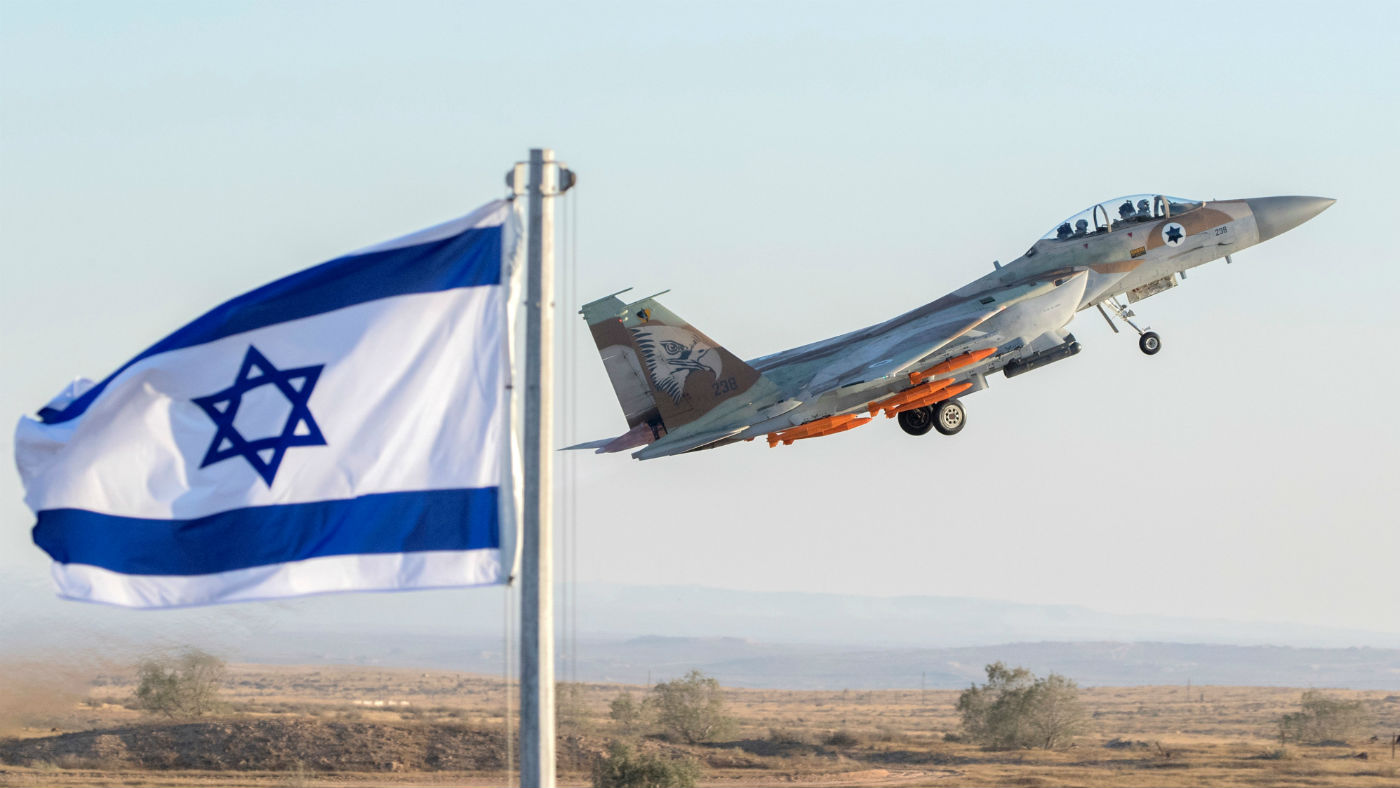Israel warns Iran over nuclear ambitions
In a veiled threat, Israel confirms it destroyed Syrian nuclear reactor in 2007

A free daily email with the biggest news stories of the day – and the best features from TheWeek.com
You are now subscribed
Your newsletter sign-up was successful
Israel has admitted it destroyed a suspected nuclear reactor being built in Syria in 2007, in a clear warning to Iran over its own nuclear ambitions.
The Israel Defense Forces (IDF) said a “vast intelligence effort” against Syria had begun in late 2004, when Israeli agents obtained information that foreign experts - believed to be North Korean - were helping Assad with a nuclear project.
After confirming the location of the site, the IDF then made plans to strike before the reactor tuned operational at the end of 2007.
The Week
Escape your echo chamber. Get the facts behind the news, plus analysis from multiple perspectives.

Sign up for The Week's Free Newsletters
From our morning news briefing to a weekly Good News Newsletter, get the best of The Week delivered directly to your inbox.
From our morning news briefing to a weekly Good News Newsletter, get the best of The Week delivered directly to your inbox.
Under the terms of the Treaty on the Non-Proliferation of Nuclear Weapons (NPT) which it signed in 1970, Syria had the right to build a reactor to generate electricity but was obliged to notify the International Atomic Energy Agency (IAEA) of any plans to construct a nuclear facility.
A 2011 IAEA survey conducted before the outbreak of the Syrian civil war concluded that the site was “very likely” to have been a nuclear reactor, although President Assad has long denied this was the case or that he cooperated with North Korea.
Israel also has never officially accepted responsibility for the attack – until now.
The country’s defence minister, Avigdor Lieberman, said the decision to publicly acknowledge the strike was intended to send a message to the country’s enemies, adding:
A free daily email with the biggest news stories of the day – and the best features from TheWeek.com
“The motivation of our enemies has increased in recent years, but the strength of our army, our air force and our intelligence capabilities have increased compared with the capabilities we had in 2007. This equation should be taken into account by everyone in the Middle East.”
It is not the first time Israel has carried out this type of operation. In 1981, it crippled Iraq’s nuclear program with the bombing of the Osiraq facility, a strike “later credited with preventing Saddam Hussein from acquiring weapons of mass destruction that could have been used in the Gulf War a decade later”, says Time.
That strike established Israel's policy, CNN says, known as the Begin Doctrine after then Prime Minister Menachem Begin, “that Israel would carry out pre-emptive strikes against the development of weapons of mass destruction it considered a threat”.
The latest message from Jerusalem is clear, says the BBC’s Tom Bateman: “Israel would be prepared to put Iranian nuclear facilities in the planes’ crosshairs in the future.”
Israel believes a nuclear Iran poses an existential threat and has claimed Iranian forces involved in the Syrian war are looking to establish a permanent presence along its northern border.
Through its latest demonstration of force, Israel “may hope to add a sharper military edge to American diplomatic pressure on Europe to toughen its stance on the 2015 nuclear deal between Iran and six world powers – an agreement detested by Israel”, says Bateman.
Last month, Israel and Iran clashed militarily in Syria for the first time, and the BBC correspondent says yesterday’s admission is a move “that once again raises the stakes in the volatile atmosphere among regional powers engaged in Syria’s seven-year long war”.
-
 The 8 best TV shows of the 1960s
The 8 best TV shows of the 1960sThe standout shows of this decade take viewers from outer space to the Wild West
-
 Microdramas are booming
Microdramas are boomingUnder the radar Scroll to watch a whole movie
-
 The Olympic timekeepers keeping the Games on track
The Olympic timekeepers keeping the Games on trackUnder the Radar Swiss watchmaking giant Omega has been at the finish line of every Olympic Games for nearly 100 years
-
 Will increasing tensions with Iran boil over into war?
Will increasing tensions with Iran boil over into war?Today’s Big Question President Donald Trump has recently been threatening the country
-
 Epstein files topple law CEO, roil UK government
Epstein files topple law CEO, roil UK governmentSpeed Read Peter Mandelson, Britain’s former ambassador to the US, is caught up in the scandal
-
 Iran and US prepare to meet after skirmishes
Iran and US prepare to meet after skirmishesSpeed Read The incident comes amid heightened tensions in the Middle East
-
 Which way will Trump go on Iran?
Which way will Trump go on Iran?Today’s Big Question Diplomatic talks set to be held in Turkey on Friday, but failure to reach an agreement could have ‘terrible’ global ramifications
-
 Syria’s Kurds: abandoned by their US ally
Syria’s Kurds: abandoned by their US allyTalking Point Ahmed al-Sharaa’s lightning offensive against Syrian Kurdistan belies his promise to respect the country’s ethnic minorities
-
 Israel retrieves final hostage’s body from Gaza
Israel retrieves final hostage’s body from GazaSpeed Read The 24-year-old police officer was killed during the initial Hamas attack
-
 China’s Xi targets top general in growing purge
China’s Xi targets top general in growing purgeSpeed Read Zhang Youxia is being investigated over ‘grave violations’ of the law
-
 Syria’s Islamic State problem
Syria’s Islamic State problemIn The Spotlight Fragile security in prison camps leads to escape of IS fighters